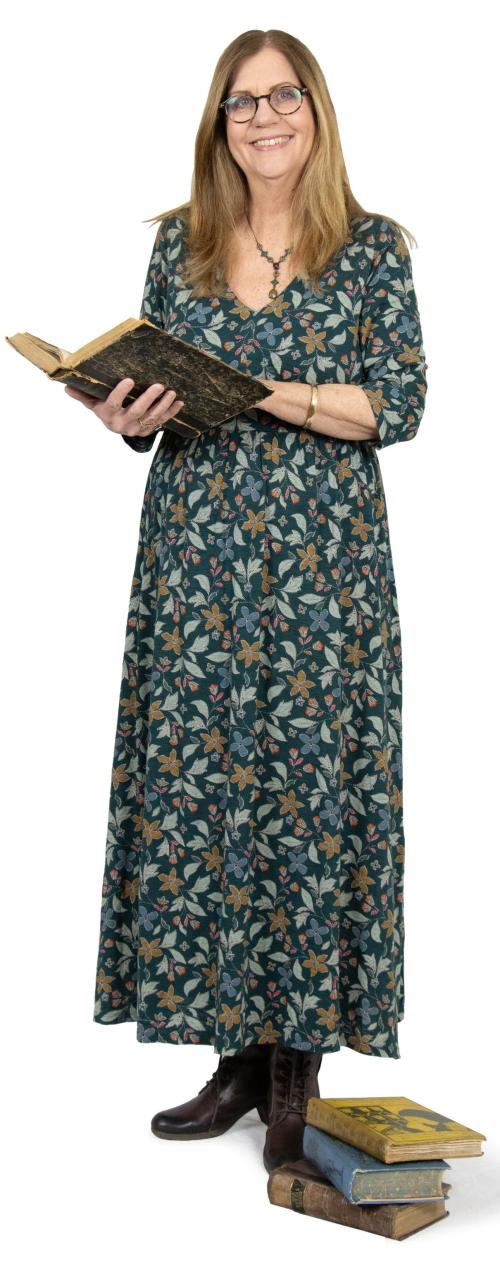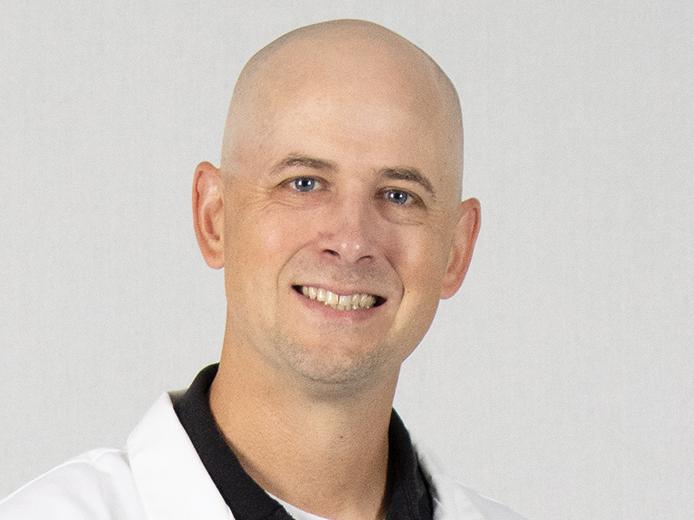Apryl Denny retired in December after more than three decades teaching English at Viterbo University. She was awarded the title of professor emeritus in honor of her outstanding service. Here is a Q&A story that was published in the spring 2024 edition of Strides, the Viterbo University magazine.
Q. Why have you decided to retire?
A. In addition to being at retirement age, I am newly married, and my husband and I want to do some traveling. I look forward to more writing and reading, playing the piano and flute, hanging out with my husband and his family, and visiting my daughter in Madison. I also collect rocks and cultivate vegetable and flower gardens. I make jewelry, and I’m learning to knit.
Q. What kept you at Viterbo for more than 30 years?
A. My colleagues and students. The blend of intellectual and moral integrity with Franciscan respect for the individual makes Viterbo the place we all love. When my daughter was born two months prematurely, I received 54 cards just from colleagues at the university, even from people I didn’t know.
Q. In the age of STEM, why are the liberal arts and English still important?
A. The liberal arts, especially English and philosophy, teach thinking and evaluation in a humanitarian context. I have taught 19th century literature and culture for 43 years, and one of its primary messages is the necessity of thinking critically about scientific advancement. Just because we can do a thing doesn’t necessarily mean we should. Have you read Frankenstein? Scientists, businesspeople, politicians, and policy makers must have the skills necessary to judge the effects of their decisions. A liberal arts education is where they learn and practice those skills.
Q. What is it that you love about Charles Dickens?
A. I suppose what I love most is the complexity of his thought. It is a very naïve reader of Dickens who thinks his novels are about orphans and surprise inheritances. Dickens, like his idol, Shakespeare, takes ideas and explores them in multiple ways through intersecting characters and plot lines. Like all important 19th-century novelists, Dickens also speaks to the 21st century.
Q. How long have you been an avid rock collector?
A. I have loved rocks ever since I can remember. At 6 years old, I was running around the countryside of northwest Georgia with a magnifying glass, a bottle of vinegar, and an old piece of tile for testing the lime content and hardness of every rock I saw. My goal was to be a geologist when I grew up, but science wasn’t for girls in those days, at least not in the South. I was steered toward literature and the arts by my family and my education. I don’t regret it; now I have interests in multiple areas, which will make retirement even more rewarding. I am currently the secretary of the Coulee Rock Club.
Q. Have you always loved antiques?
A. “Antiques” seems like a very glorified word for what I have collected. Back in the 1970s, my mother and I used to go on what she termed “junking expeditions.” I learned how to refinish furniture from my mom and have many pieces that she or I bought over the years from shops, yard sales, and estate sales. The most interesting is probably my ornate, Victorian, oak pump organ. It belonged to my great-grandmother, who was the organist at a little country church in West Virginia.




